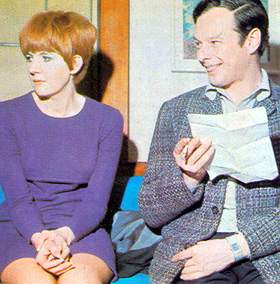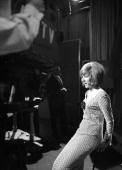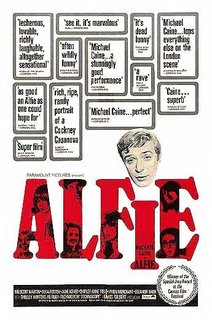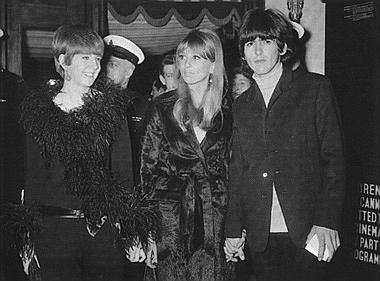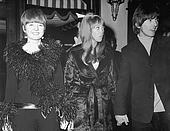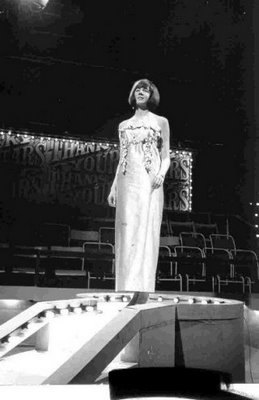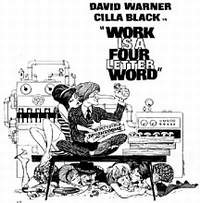 In 1967 Cilla Black co-starred with David Warner in Work Is A Four Letter Word. The film was directed by Sir Peter Hall (his first foray into the cinema.) Based on the Henry Livings stage play Eh? and adapted for the big screen by Jeremy Summers, the plotline in a nutshell goes like this:
In 1967 Cilla Black co-starred with David Warner in Work Is A Four Letter Word. The film was directed by Sir Peter Hall (his first foray into the cinema.) Based on the Henry Livings stage play Eh? and adapted for the big screen by Jeremy Summers, the plotline in a nutshell goes like this: Set in a futuristic world where man and machines compete, this comical fantasy centers upon a rather eccentric man who prefers raising his special giant, euphoria-producing mushrooms to working and spending time with his fiancee. He means well, for he believes that his funny fungus will help combat the increasing dehumanization of society. However, unable to withstand his bride's pressure, he finally takes a real job in a power plant. There he knocks out the power and then feeds his mushrooms to the authorities. While they walk around in a hallucinatory daze, he and his fiancee take a baby carriage filled with mushrooms and hightail it out of town. (Sandra Brennan, All Movie Guide)
Ahem. Well, we are talking 1967 here, people.
Work Is A Four Letter Word was Cilla's one and only full-length feature film where she starred in a leading role. Several times Black has commented on working on it; relishing the camaraderie with the film crew to experiencing near-fatal episodes with some of the stunt work. It's interesting to note that while making Word she was filming during the day and appearing in a West End show by night. An exhausting schedule.
In a 1997 interview Black revealed she was asked to appear in classic 1969 film The Italian Job, alongside Noel Coward and Benny Hill, playing the part of Michael Caine's girlfriend, but negotiations fell through between producers and her management over her 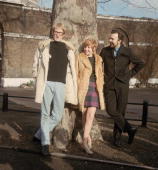 fee.
fee.
 fee.
fee. Filmed in the typical Sixties style, in full glorious technicolor, it remains an interesting and stylish piece of film making. Work is A Four Letter Word has yet to be released commercially on either VHS or DVD.
Here at The Girl from Abbey Road we reckon Cilla's trip needs to be released... far out, man...
Right: David Warner, Cilla Black, and director Peter Hall take a break on the set of Work Is A Four Letter Word.
